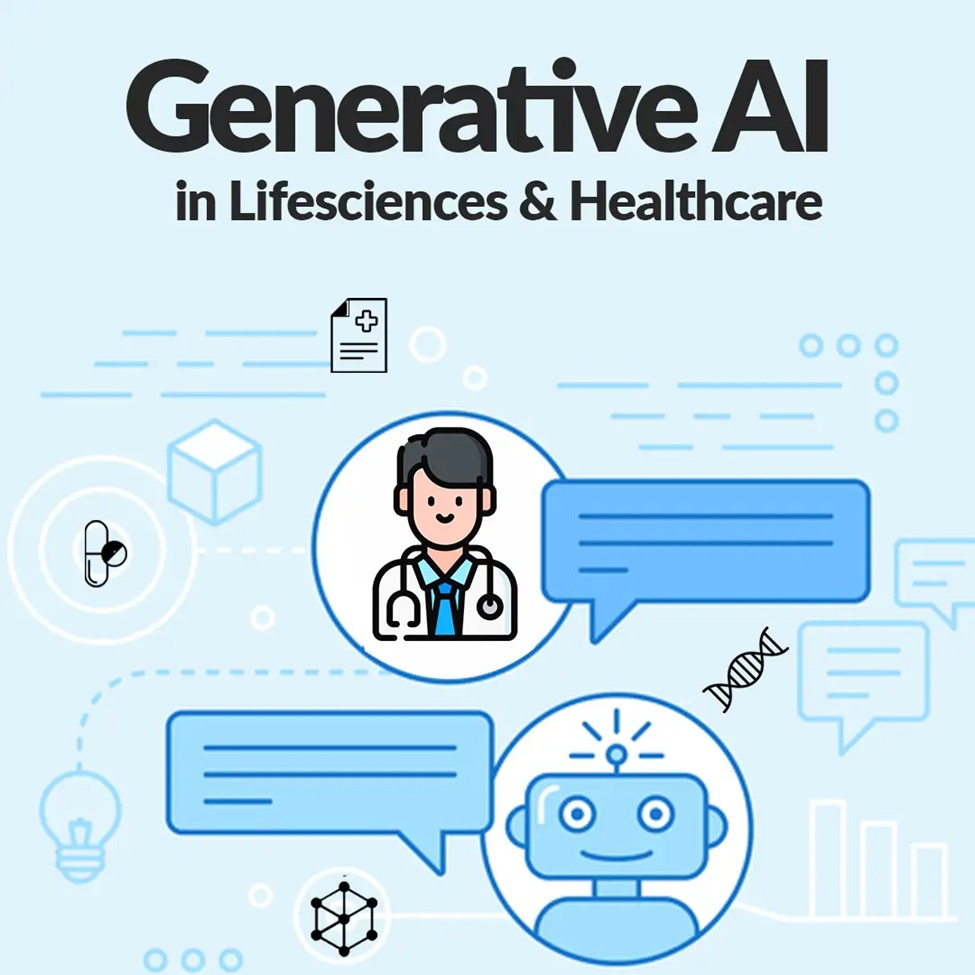Generative AI platforms have transformed industries like healthcare and customer service. In healthcare, these platforms enhance diagnostics, accelerate drug discovery, and improve operational efficiency. Meanwhile, AI customer support agents streamline client interactions and improve service quality.
Role of Generative AI in Healthcare
Revolutionizing Diagnostics and Treatment Planning
Generative AI platform for healthcare has revolutionized diagnostics by analyzing large datasets to detect diseases early. These AI systems process radiology images, genetic information, and patient records to provide personalized treatment plans, improving overall care.
Accelerating Drug Discovery
Generative AI expedites the drug discovery process by simulating chemical reactions and predicting the behavior of new molecules. This reduces research costs and time, leading to quicker development of life-saving drugs for complex diseases.
Improving Operational Efficiency Through Automation
Automation, powered by generative AI, helps hospitals manage administrative tasks like scheduling and billing, leading to increased operational efficiency. This allows healthcare professionals to focus more on patient care, reducing manual errors.
Predictive Analytics in Healthcare
Generative AI can predict healthcare trends and patient needs, helping healthcare providers allocate resources effectively. Predictive models analyze past data to forecast disease outbreaks, hospital admissions, and resource requirements.
Role of AI in Customer Support
Enhancing Customer Experience with AI Agents
AI customer support agents use Natural Language Processing (NLP) to deliver fast, accurate responses to client queries. These agents reduce response times and improve satisfaction by addressing customer needs in real time.
Multichannel and Multilingual Support
AI agents operate across various platforms, including chat, email, and voice, providing businesses with multichannel support. Moreover, these agents offer multilingual assistance, allowing companies to engage global customers seamlessly.
Automating Ticket Management and Query Resolution
AI-powered ticket management systems automatically categorize and resolve tickets, prioritizing more complex issues for human intervention. This leads to quicker resolution of routine queries and improves overall customer service efficiency.
Voice Interaction and AI-Powered IVR Systems
AI has enhanced voice interactions through IVR systems, allowing customers to access self-service options and reducing call center workloads. These advanced systems can handle voice commands, improving customer satisfaction.
Intersection of AI in Healthcare and Customer Support
Improving Patient-Centric Care with AI
Integrating AI customer support agents into healthcare provides real-time answers to patient queries, helping them schedule appointments, track medical records, and manage follow-up visits. This enhances patient experience by offering personalized support.
Real-Time Assistance for Healthcare Providers
AI also supports healthcare professionals by offering quick access to information, such as drug interactions and patient history. This real-time assistance enables medical staff to make informed decisions, improving patient outcomes.
Challenges in Implementing Generative AI in Healthcare and Customer Support
Data Privacy and Security Concerns
Handling sensitive healthcare data requires stringent security measures. Generative AI systems must comply with data privacy regulations, incorporating strong encryption and secure access controls to protect patient information.
Integration with Existing Systems
Integrating AI platforms into existing healthcare and customer support infrastructure poses technical challenges. Ensuring compatibility with legacy systems and training staff to use AI effectively are essential for smooth implementation.
Ethical Considerations
AI systems raise ethical concerns, especially in healthcare, where decisions made by AI could directly impact patient health. Ensuring that AI complements, rather than replaces, human judgment is crucial for ethical use.
Future of Generative AI in Healthcare and Customer Support
Advanced AI-Driven Personalization
The future of AI in healthcare involves even more personalized treatment plans. Generative AI will use patient-specific data to create tailored healthcare interventions, improving treatment outcomes.
AI-Enhanced Customer Interactions
In customer support, AI will further improve customer interactions by predicting user needs and offering pre-emptive solutions. AI agents will continue to evolve, delivering more human-like responses and handling complex scenarios with greater accuracy.
AI-Driven Predictive Maintenance in Healthcare
Predictive maintenance of medical equipment, powered by AI, can reduce downtime and extend the life of critical devices. This will ensure that hospitals remain fully operational, reducing costs and improving patient care.
Continuous Learning and Adaptation
As AI systems learn from each interaction, they will become more adept at handling both healthcare and customer support tasks. Continuous learning will enable AI to adapt to new challenges, improving overall system performance.
Conclusion
Generative AI platforms are reshaping healthcare and customer support by driving innovation and improving operational efficiency. In healthcare, AI offers personalized treatment plans, expedites drug discovery, and enhances patient care. In customer service, AI agents are revolutionizing customer experiences through real-time interaction and automation. Despite challenges like data security and system integration, the future of AI in these industries is bright, with continuous advancements leading to more personalized, efficient, and impactful solutions. As these technologies evolve, they hold the potential to further revolutionize how businesses and healthcare providers interact with customers and patients alike.


